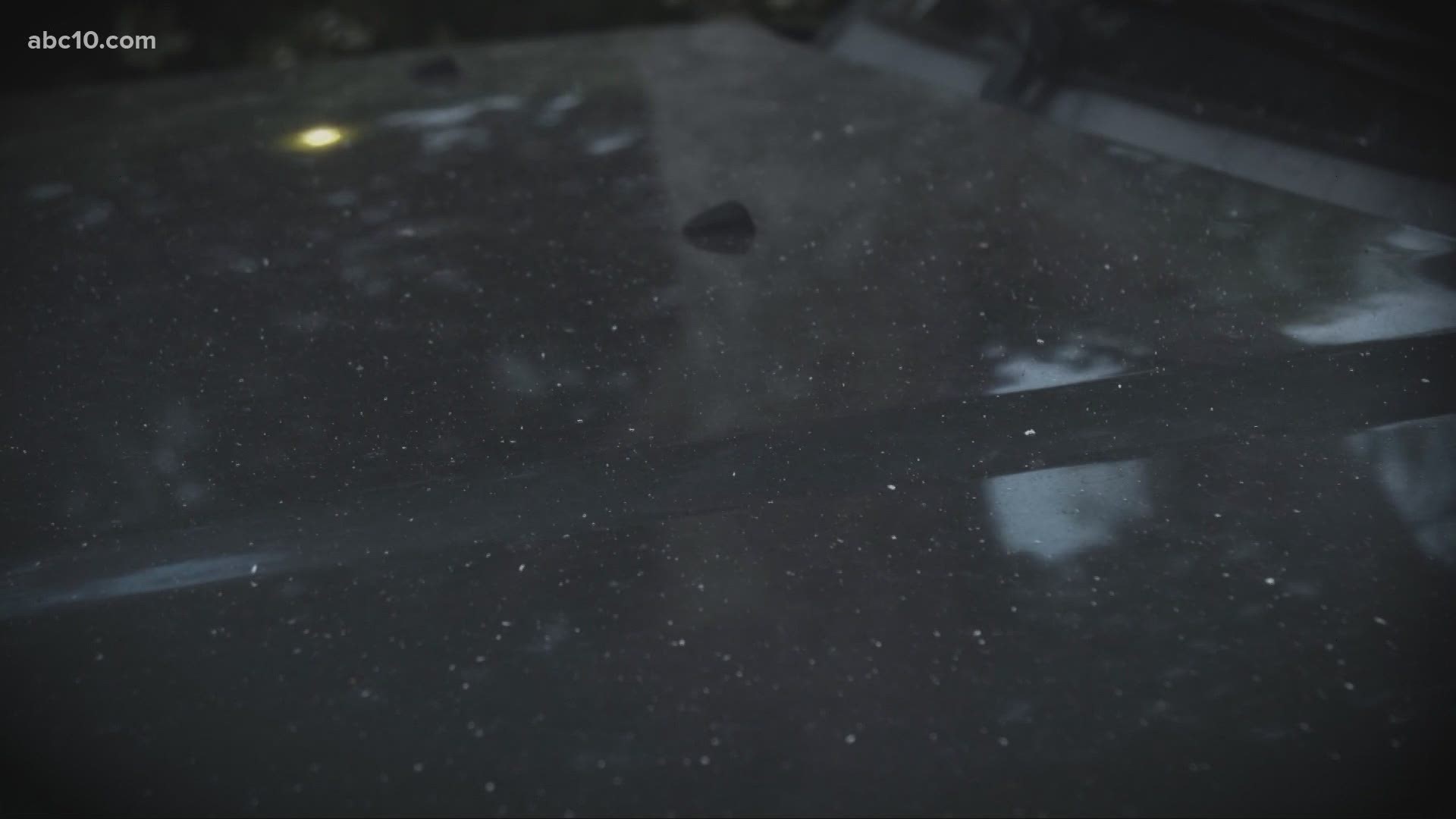SACRAMENTO, Calif. — A rare complex of thunderstorms with dry lightning is responsible for hundreds of new fires in Northern California during the historic heatwave.
Already dry fuels showed explosive growths as fires are beginning to burn tens of thousands of acres in the Coastal Range and Sierra.
For most of the summer, the air quality has been good and skies have been clear. The fires have produced so much smoke that the air is now considered "unhealthy" for anybody in the area.
In areas near major fires, including Vacaville, Tracy, the Bay Area, Patterson, and the Tahoe Basin, the air is approaching "hazardous" levels of smoke particles known as PM 2.5.
Since these fires are burning in the middle of the hot and dry California summer, they have the potential to burn for weeks, especially with resources strained and temperatures rising after Thursday.
Smoke will settle and concentrate mostly to lower valley areas in the morning, then typically lift and move in the direction of the stronger winds during the day. The air quality will change hour by hour but should be a daily concern if you have health issues related to smoke.
Medical experts are urging everyone, especially those with compromised immune systems, to stay inside.
"Because of the smoke, ash and all the other pollutants in the air, it compromises the immune system of your lungs," Dr. Payal Kohli said.
Dr. Kohli explained that if your lungs and immune system are fighting secretions in the air in order to keep breathing, it in a way "tricks" your body into becoming more susceptible to other immune issues, like COVID-19.
But not everyone can stay inside. That's why she recommends people upgrade their masks to N-95 as self-made or store-bought masks may help prevent the spread of coronavirus, they will not be beneficial to environmental pollution.
Miguel Frias, John Ellis & Son Auto Repair and Maintenance Owner and Operator, pushed the importance of an updated air filter in vehicles. He called the air-filter the "face mask of the car."
Air filters keep everything from pollen to ash from entering the car, and therefore your lungs. They should be replaced every 12,000 to 15,000 miles.
"It's like your draining the sink, it'll collect everything," Frias said. "So you won't have to worry about breathing [ash] in."
WATCH ALSO: How to stay healthy with poor air quality

